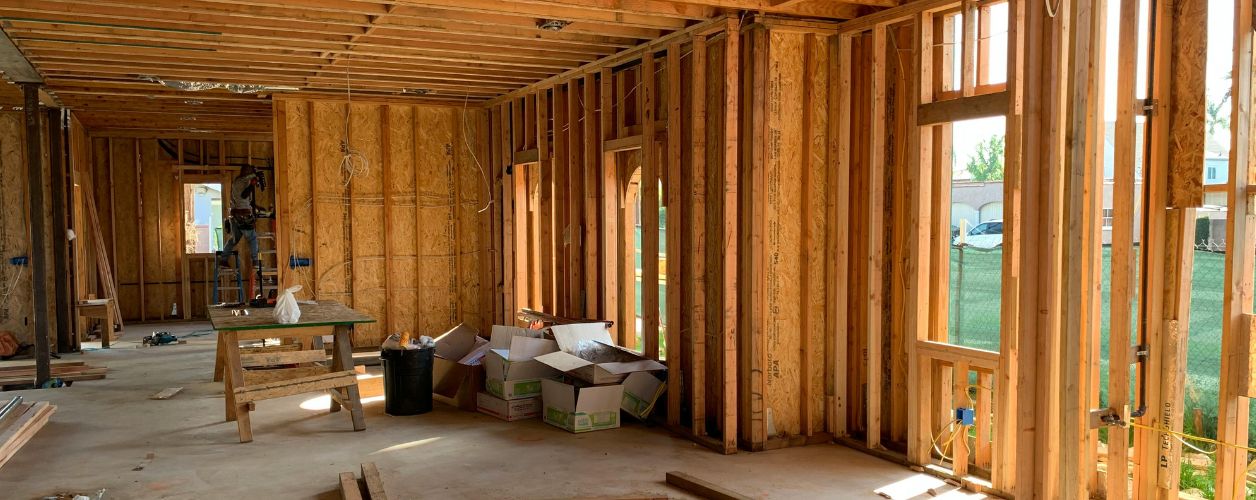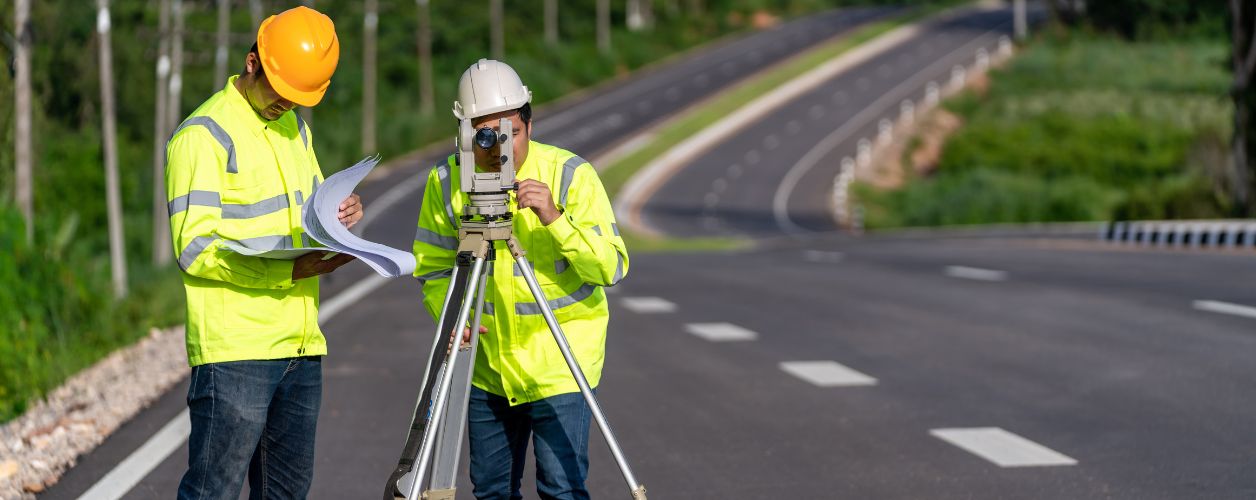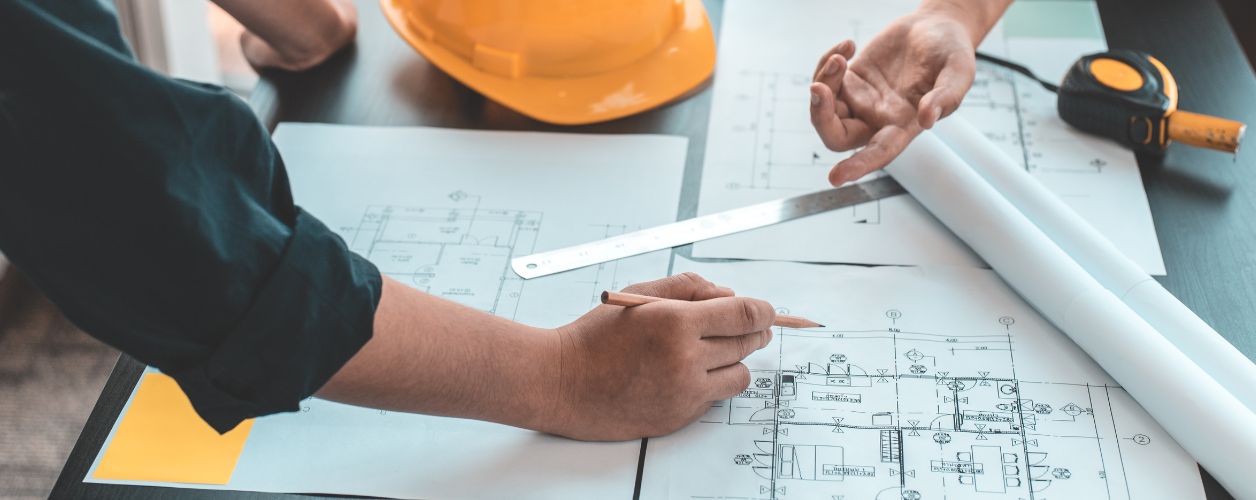Cost to Build a House: Essential Tips Revealed
The average house building cost in the UK ranges from £1,800 to £3,000 per square metre. That would mean a 150 m2 house is going to cost anything between £270,000 and £450,000 to construct. These numbers rise sharply when high-end finishes or intricate architectural elements are involved.
Building a house is a dream, where one gets the opportunity to design a home that fits exactly their needs and way of life. However, it is essential to understand the costs involved. House building costs in the UK vary widely depending on location, size, specification, and a range of other factors. In this ultimate guide, you will find the answer to the question How much does it cost to construct a house in the UK in 2025, tips, and pieces of advice to start working on the construction plan based on real data.
Understanding House Building Cost in the UK
At its core, house building cost refers to the total amount of money required to construct a new residential property from the ground up. These involve not only the cost of building but also additional costs such as the land purchase, planning permission, hiring professionals, and utility connections.
The Land Costs: The Basis of Your Budget
Land cost is among the earliest and most significant financial challenges in any house-building endeavor. That is the foundation upon which all the others thrive and stand not only structurally, but also financially. Within the UK, land prices may fluctuate significantly based on place, availability of facilities, development capability, and current planning status.
An example would be a modest plot anywhere in remote or rural locations like most of Northumberland, Cumbria, or mid Wales, you may be able to get onto with little more than £50,000. These regions, in general, provide good savings to people willing to live traditionally in countries or those who prefer working remotely. In or close to a major city such as London, Oxford, Cambridge, or Brighton, a small plot can be worth over half a million (sometimes much more) even before any building is placed upon it.
When calculating your overall house building cost, land purchase will likely be your single biggest upfront investment, especially if you're aiming for a property in a desirable location.
Hints to Finding Land:
- Look on Planning Portals: There are planning websites operated by the local councils where the land is listed that is open to development. Monitor their aspects of the update of the planning application.
- Fill out Specialist Sites and Auctions: To get a good overview of what is available, it is a good idea to visit sites like Plotfinder, the land page in Zoopla, or auctioneers like Savills or Allsop who sell land.
- Seek Planning Permission: It is riskier and time-consuming to buy a piece of land and then seek planning permission. It is more expensive initially, but it is likely to avoid costly setbacks or rejects in the future.
Building regulations and Planning Permission
Your intended home should adhere to planning regulations and pass through rigid building regulations before any home can be erected. This includes two independent though equally important processes, namely planning permission and the building regulations approval.
Planning Permission
Obtaining planning permission is an official procedure that will make sure that your planned development will be appropriate to the site and the area. In England, the average cost of a household planning application is £462, but it may slightly fluctuate in Scotland, Wales, or Northern Ireland. There will be extra charges in case you are dealing with a bigger or more complex site.
The local authority may, in most cases, need additional reports like:
- Ecological evaluations (in particular in trusted areas or discharge land)
- Risk assessment of floods
- Heritage or archaeological surveys in case the site is located within the conservation area or historic sites
All these reports could cost hundreds or thousands of pounds to your total pre-construction costs.
Building Regulations
The planning permission - what can be constructed; building regulations permission - makes sure it is constructed safely and to the standards necessary. This is for the structural safety, integrity, insulation, drainage, fire, and ventilation.
The cost of approval may range between £500 - £1000 (depending on the project volume and intricacy). You may get this either as part of your local authority or even using an approved private building control body.
Just keep in mind that you are not able to start a building project without both sets of go-ahead. The absence of that may lead to enforcement, fines, or even the necessity to demolish the unauthorised works.
Professional Fees: Architects, Engineers, and Project Managers
When the land is acquired and the permission is obtained, what follows is a professional team to complete your dream house. A desire to reduce costs may make some self-builders consider engaging in designing or management of the building, but it is nearly always best to employ experienced builders and structural engineers, more so on a first-time build.
Architects
The fee for architectural services normally constitutes a figure or percentage of between 5 -10% of the total cost of your building. In a house that is set to cost £250,000 to build, you will pay between £12,500 - £25,000. Other architects propose a set fee for smaller constructions or designs.
They may be involved with concept design, preparation of plans, planning permission, liaison with the local authorities, and monitoring of the construction stages. Employing the services of an architect in the initial stages is usually an effective way to prevent making mistakes in the future.
Structural Engineers
A structural engineer is necessary in the case that your build includes non-standard construction, steel framing, basements, or a large span. The cost of getting their services may be between £500 to £2,000, depending on the design and structural requirements.
Survey and Project Managers
- Quantity Surveyors aid in the estimation of cost and budgetary control.
- Land Surveyors might be necessary in order to evaluate boundaries and topography.
- Project Managers can assume control of the operational activities of the build and coordinate trades and suppliers so that everything is going according to schedule.
These services could cost you another 5 to 15% of what the rest of your project costs, depending on their degree of involvement.
Site Preparation cost
Site preparation is a critical yet often underestimated component of house-building costs. The site that needs to be altered to be suitable to be built upon will have a list of possible activities to undergo before any real construction work commences. The list will depend on the condition of the site. These involve clearing the vegetation, removing the current structures, levelling the terrain and ensuring safe access, and conducting the necessary investigations of the ground.
Removal of what is already there: In the event that your site harbours an old building or outbuildings, there is a need to remove them safely. The average price will be between £5,000 and £15,000, depending on size and complexity.
Clearance of trees and vegetation: Overgrown display plots, shrubs, and trees will almost certainly need specialist tree services, which will cost a couple of hundred pounds up to £800. There might be a need to apply extra permits or arborist reports in case of tree protection orders (TPOs).
Ground levelling and grading: Plots with a slope possibly require cut-and-fill operations so that they can have a level base, and this would also increase the overall cost by a few thousand pounds according to the site terrain.
Soil testing and ground surveys: It will identify the kind of foundation your home would require, and then also whether there will be any contaminants or water table problems. The prices may be from £1000 to £3000. It is essential to prevent structural problems in the future.
Access enhancements: Access to a temporary or permanent location of machinery may be needed, in which the layouts of this access can cost between £1,000 and £5,000, depending on whether they are paved or not.
The site preparation is one of the stages in which some difficulties are likely to appear. It’s advisable to allocate a flexible budget (£5,000 to £20,000) and conduct thorough due diligence, including a topographical survey and basic soil analysis, before purchasing a plot.
Costs of Construction
The way you build will significantly affect your budget:
- Brick and block: Old-fashioned and old. Costs around £1,800 - £2,500/m²
- Timber frame: Faster build time, good energy efficiency. Costs around £1,700 - £2,400/m²
- Insulated Concrete Formwork (ICF): Modern, thermally efficient. Costs around £2,000 - £3,000/m²
- Modular/Prefabricated homes: Factory-built, less site labour. Costs around £150,000 - £350,000 per home, depending on size and specifications.
Always consider energy efficiency and maintenance when choosing materials, not just the initial house-building cost.
Contractor charges and Labour Costs
One of the largest items of your building budget is labour. You can employ the services of a main contractor (who does everything) or you can carry out the build yourself and find trades to employ step by step.
- Main contractor route: 30%-35% more expensive; however, it is convenient
- Self-managed build: It can be cheap, needs time, and confidence
Labour rates example:
- Bricklayers: £200 - £250/day
- Electricians: £30 - £60/hour
- Plumbers: £40 - £70/hour
Labour shortages or delays can quickly inflate your overall house-building cost.
Finishes and Materials Cost
The cost of materials may fluctuate according to the specification and design taste:
- Basic specification: £80,000 - £100,000
- Mid-range: £120,000 - £180,000
- High-end/luxury: £200,000+
This involves the roof tiles, insulation materials, window designs, doors, flooring, kitchen, bathroom fittings, and interior decoration.
Saving tip: Bulk buying materials and sticking to standard sizes can reduce house-building costs.
Power and Infrastructure
Connecting a new building to mains utilities (water, gas, electricity, sewerage) can cost £10,000 - £20,000, depending on location and proximity to existing infrastructure.
Certain cost off-grid solutions (e.g., boreholes, solar panels, septic systems) may be less expensive in the long run, but may be more expensive to set up up-front.
Pricing Per Type of House
Here is a general overview of the current house building costs in the UK based on house type:
- 2-bed bungalow (100m²): £180,000 - £300,000
- 3-bed semi-detached (120m²): £216,000 - £360,000
- 4-bed detached (180m²): £324,000 - £540,000
- Luxury 5-bed (250m²): £450,000 - £750,000+
These prices are average. It depends on materials, labour, and finishes.
House Building Insurance Cost
Insurance is not a choice. The major policies are:
- Insurance of the site (day one)
- Public liability
- Employer’s liability
- Resale/structure warranted (10 years)
Expect to pay £1,000 - £2,500 depending on cover and project size.
House Building Cost Summary
Stage/Category |
Estimated Cost / Range |
Notes |
Design & Planning |
Architect Fees |
5%–15% of the total build cost |
Custom design, drawings, and project management |
Structural Engineer |
£1,000–£5,000 or £90–£200/hour |
Based on project complexity |
Planning Permission |
£462 per dwelling |
Full application (England) |
Building Regulations Approval |
£500–£1,000 in fees; £2,500–£3,500 for drawings |
Required for legal compliance |
Environmental & Site Assessments |
£300–£1,000+ |
Flood risk, soil tests, etc. |
Groundwork & Foundations |
Site Clearing & Preparation |
£1,000–£5,000 |
Depends on the terrain and obstructions |
Foundations |
£95–£280 per metre |
Type (trench fill, raft, etc.) impacts cost |
Drainage & Sewerage |
£2,500–£5,000+ |
Connection or installation from scratch |
Structure & Build |
Superstructure (Walls, Roof, Frame) |
£1,500–£3,000 per m² |
Main structure of the home |
Bricklaying |
£240–£320 per day |
Labour only |
Roofing |
£10,000–£25,000 |
Style, size, and materials matter |
Scaffolding |
£200–£280 per day |
Often priced per project |
Utilities & Core Systems |
Plumbing |
£40–£70 per hour |
Full system install: up to £10,000+ |
Electrical Work |
£45–£60 per hour |
Full install: £5,000–£15,000 |
HVAC / Heating Systems |
£3,000–£10,000 |
Boilers, underfloor heating, etc. |
Insulation |
£20–£50 per m² |
Floor, roof, and wall types |
Interior Work |
Flooring |
£15–£25 per hour + materials |
Wood, carpet, and tile options |
Carpentry |
£30–£90 per hour |
Stairs, skirting, doors, etc. |
Plastering |
£10–£20 per hour |
Wall finishing |
Painting & Decorating |
£250–£400 per day |
Labour cost only |
Kitchen Installation |
£15,000–£30,000 |
Fitting + cabinets + appliances |
Bathroom Installation (2 bathrooms) |
£10,000–£25,000 |
Fixtures, plumbing, and waterproofing |
Fixtures & Fittings (General) |
£18–£65 per hour |
Lighting, sockets, switches, shelves |
Exterior Work |
Landscaping |
£5,000–£10,000 |
Driveways, patios, turf, fences |
Garden Structures (e.g., sheds, decking) |
£1,500–£5,000+ |
Optional |
Boundary Fencing & Gates |
£40–£100 per metre |
Depending on the material |
Other Costs |
Labourers (General Support) |
£180–£240 per day |
Non-specialised assistance |
Project Management / Main Contractor |
£240–£320 per day |
Or a fixed % of the project cost |
Temporary Accommodation |
£800–£1,500 per month |
If living elsewhere during the build |
Snagging Survey |
£300–£600 |
Post-build inspection |
DIY Tools, Permits & Contingencies |
Tools & Equipment (DIY builders) |
£2,000–£10,000 |
If self-building |
Building Insurance |
£500–£1,500 |
Cover during construction |
Contingency Budget |
+10% of the total project cost |
For unexpected expenses |
Which Is Affordable: Buying or Building A Home?
The affordability of buying vs. building a home depends on multiple factors such as location, design preferences, current market conditions, and how involved you want to be in the process. Here's a breakdown to help you decide which is more cost-effective for your situation.
Aspect |
Buying a Home |
Building a Home |
|---|
Average Cost |
~£280,000 (existing 3-4 bed home) |
~£358,000+ for a new 4-bed detached house |
Stamp Duty |
Yes (on homes >£250,000) |
Only on land (usually lower) |
Customisation |
Limited (renovation needed for changes) |
Full control over design, layout & features |
Energy Efficiency |
May need upgrades |
Can meet the latest efficiency standards from the start |
Timeline |
8–12 weeks (average) |
6–12 months or longer |
Hidden Costs |
Repairs, renovations, and moving fees |
Planning, approvals, overruns |
Financing |
Mortgage available with smaller upfront costs |
Often higher upfront, may need a self-build mortgage |
Stress Level |
Lower |
Higher (planning, managing, delays) |
Long-term Value |
Depends on market |
Higher if well-designed and in a desirable location |
Conclusion
The house building cost in the UK can vary significantly, but with thorough planning and a realistic budget, it is entirely possible to build your dream home without financial strain.
Begin by drawing up all possible expenses, including land and legal fees, building, and finishing. Include a healthy contingency and get some time to research your professionals and suppliers.
Construction of a house is not a sprint; it is a marathon. Be knowledgeable about changes, stay open, and be willing to accept assistance in the form of standing professionals.



